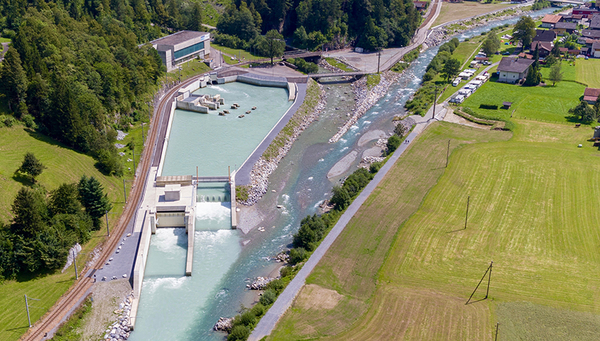Archive detail
Planning measures to mitigate the impacts of hydropeaking
November 8, 2016 |
Hydropeaking operations at storage hydropower plants affect hydrological processes and have adverse impacts on river ecosystems. For example, rapid and intense fluctuations in discharge can cause fish and macroinvertebrates to be flushed downstream or stranded. In the coming decades, the adverse ecological effects of hydropeaking are to be mitigated in Switzerland and in Europe. With the aid of case studies, scientists at Eawag have developed a conceptual framework for the evaluation and planning of mitigation measures. The framework is based on a set of indicators (e.g. flow velocity, riverbed clogging or redd dewatering) which cover the most important abiotic and biotic processes and all the hydrological phases of hydropeaking. Modelling is then used to make quantitative predictions of the effects of mitigation measures. The findings of this study have been taken into account in the new guidance on the mitigation of hydropeaking issued by the Federal Office for the Environment.

